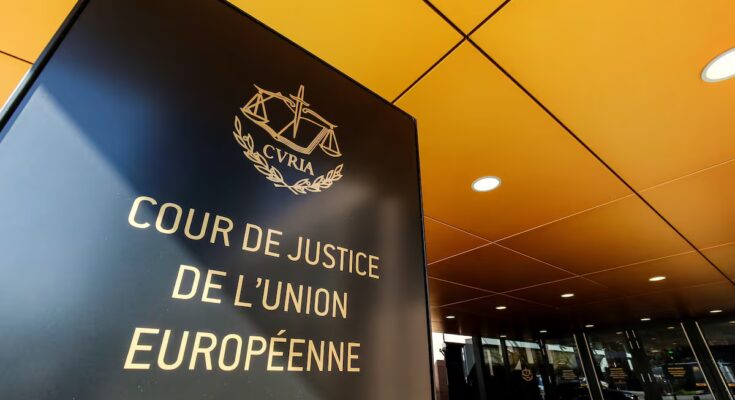Non-alcoholic gins cannot be identified with the word “gin”. This is what the Court of Justice of the European Union (CJEU) clearly ruled on Thursday in a ruling in which it agreed with a German association and banned the sale of soft drinks bearing the label referring to said distilled drink. European justice recalls that the regulation on the definition, designation, presentation and labeling of spirit drinks reserves this denomination exclusively for gin or gin.
The matter dates back to October 2023, when an association for the fight against unfair competition sued the company PB Vi Goods for misleading advertising, which sells and promotes, among other products, a soft drink called Virgin Gin Alkoholfrei (non-alcoholic virgin gin). According to the German organization, the distributor violates European regulations, which is why it asked the German justice system to order the cessation of the sale of the aforementioned drink.
The issue fell before the regional court of Potsdam, which decided to paralyze the discussion of the issue and to refer a preliminary ruling to the highest European judicial body to decide whether the inclusion of the “gin” label accompanied by the wording “non-alcoholic” in drinks which do not reach the minimum alcohol content required by volume to be classified as gin contravenes EU law. In his reasoning, the judge of first instance underlines that the term “alcohol-free” would help eliminate the risk of misleading the consumer. But he also points out that the legislation itself prohibits descriptions such as “gin flavour”, which is why he raises his doubts about it.
In its ruling, the CJEU specifies that community law clearly prohibits the use of the name “non-alcoholic gin” in the presentation and labeling of a non-alcoholic drink such as the one marketed by PB Vi Goods, since it does not meet the requirements established to be classified as gin. The European standard on spirit drinks specifies that this drink must be produced by flavoring ethyl alcohol of agricultural origin with juniper berries and that its minimum alcohol content by volume must be equal to 37.5%.
In this sense, the Luxembourg-based court underlines that it is irrelevant if, on the label, the word gin is accompanied by the expression “non-alcoholic” because from the beginning it does not comply with what is established to be a gin. Nor could definitions such as “similar to”, “of the type”, “in the style”, “prepared” or “flavouring” be added, he adds.
The CJEU recalls that spirit drinks represent an “important market” for the agricultural sector of the European Union and that the objective of the regulation is “to ensure fair competition and protect the reputation of such drinks”. “Although it is obvious to the consumer that a product called ‘non-alcoholic gin’ does not contain alcohol, he may be confused about its other characteristics, as the requirements for the legal denomination of ‘gin’ include elements that go beyond the simple presence of alcohol,” the ruling reads.
However, the European judicial system specifies that the ban is proportionate and that it does not violate the freedom of companies because it responds to the objective of avoiding the risk of confusion regarding the composition of the products, as well as unfair competition with respect to gin producers who meet the requirements established for its production. Nonetheless, the Court emphasizes that this restriction only refers to the use of the name of the spirit drink for those who do not have the minimum alcohol content required to be considered such.



